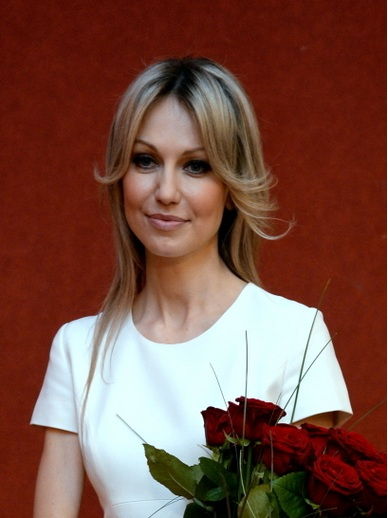The preliminary exit polls published just minutes ago after the first round of presidential elections surely gave some people in Poland a proper scare. As for me: being a pessimist again paid off. My prediction turned out to be correct again.
Kliknij TUTAJ aby przeczytać poprzedni odcinek cyklu.
Kliknij TUTAJ aby zobaczyć listę wszystkich dotychczasowych felietonów.
The most stressed ones must be those who believed that those elections were to be just an easy walk in the park for Rafał Trzaskowski. As I argued in the previous chapter of this series, the decision to move Trzaskowski more to the right was a mistake. In a race for a trophy of “the most right-wing guy around”, Trzaskowski stands no chance even with Nawrocki, not to mention right-wingers like Sławomir Mentzen. Meanwhile, such campaign tactics is paradoxically helping his opponents. There is no way this would ever work: just like Tories in Britain, who were trying to take the game to Nigel Farage’s garden lost it, as in his own backyard he has much more to say than they do, Trzaskowski tried to appeal to the right wingers by making things like “protection of borders at all cost – even if we had to suspend the law” (see my short piece in Polish here) and stirring anti-Ukrainian sentiments and lost. Because when it comes to instigations against the migrants or being anti-Ukrainian, not only PiS candidates, but also the radical right ones have much more to say. And as the issue that are the core topics of their campaign were made the centre-points of the whole campaign, the candidates such as Konfederacja’s Sławomir Mentzen or pro-Russian Grzegorz Braun were just basically given chance to score lot of points without even trying to venture into the topics that would be uncomfortable for them – which was a huge mistake, as it’s clear that Mentzen loses ground as soon as he is pulled even an inch outside of his comfort zone.
Meanwhile, Nawrocki had it very easy in the campaign so far: it was obvious that he could only count on the PiS core vote in the first round. As a result, even the biggest scandals, such as the accusation that he used an elderly man with cognitive difficulty to take over his flat by promising to provide lifelong care to him in exchange for the ownership, then abandoned him in a care home, were unable to cause him any harm. For him, the real work starts only now.
And so, according to preliminary polls, Trzaskowski came first with 30.8% of votes – much less than expected, not even 2% ahead of Nawrocki. The fact that radical right came up with over 20% of predicted votes (15.4% for Mentzen and 6.2% for Braun) is a disaster, as it means that more than half of Poles voted for radical right and undemocratic candidates (PiS’s Nawrocki, Konfederacja’s Mentzen, pro-Russian Braun and some other plankton). The Russian meddling cannot be excluded here, if only with the fact that there was another, radically and openly pro-Russian candidate, a virtually unknown – even amongst the pro-Russian population – Maciej Maciak. His predicted result is less than 0.5%, however, his influence cannot be ignored: his openly pro-Russian utterances were there to create the backdrop, upon which Braun could present himself as a reasonable candidate.
On the other hand, there is a strange case of Krzysztof Stanowski, a former sports journalist who, after obtaining funding from not entirely transparent sources, recently started his own “television” channel on YouTube and proclaimed himself to be an uncompromising future of journalism. He promised to be a merciless critic of both media and the political class, however, he seems to be very lenient when it comes to criticising PiS, while spending a lot of time attacking its opponents. Krzysztof Stanowski decided to run for presidential election too, claiming he’s doing it just to “uncover” for his viewers how dirty the campaign is and being able to tell it to other candidates right to their faces during debates etc. but, again, the PiS candidate had it exceptionally easy compared to others (not that his stunt was in any way significant, if we take on face value what he was promising, the whole happening turned out to be a massive flop – at least when we ignore the fact that more than 1 in 100 voters still cast a ballot for him.
There were some interesting developments on the left side of the political spectrum, too. We can largely ignore an unexpected comeback of Joanna Senyszyn, a veteran of the Polish left, who in the last moment managed to deliver the required number of signatures and took part in the election, although it’s hard to believe she was taking it all seriously. It was de facto a duel.
In one corner, there was the deputy speaker of the Senate, Magdalena Biejat, who left the young social democratic party Razem and decided to align herself with that part of the left that is still a part of Donald Tusk’s government coalition under the Lewica brand. On the opposite side was Razem’s Adrian Zandberg. All three left-wing candidates secured over 10% of votes between themselves, which is one of the best results the left has had in many years.
The campaign of the left-wing candidates was something like a lower league football that happens in little relations to what’s going on in the champion’s league: it was clear none of them has the chance of being president, so they crossed swords de facto about what would be the best strategy for the left to go ahead. Adrian Zandberg was sharply criticising Donald Tusk’s government. Biejat, as a representative of the coalition party, was unable to go that way, so she instead attacked Zandberg, accusing him of taking the easy path: it’s easy to criticise when you are not taking responsibility – she said. She was trying to argue that thanks to Lewica’s participation in the government means that they at least can do some good. But her argument was weak, as Lewica’s agency in the government is very weak; it seems like they are waiting at the table for Donald Tusk to throw them some scraps from time to time, so they can go on Twitter and brag about how successful they are. Those scraps, however, tend to be rather insignificant compared to what left-wing voters would expect, and in most cases seem to be things that Tusk was ready to do anyway, but decided it would be better to do them with Lewica’s hands so he does not annoy his more right-wing leaning voters.
The fact that by being in the government Lewica legitimizes human rights violations at the Belarussian border for example means that this was rather a handicap than an asset for Magdalena Biejat, although I have to admit with the predicted result of just over 4% she fared better than I expected, as she was definitely more than just a pretty face for the old farts that pull the strings in Lewica, like it was in case of Magdalena Ogórek a decade ago.
However, it seems that Adrian Zandberg’s tactics resonate better with left-leaning voters. Razem, rather than going for compromises and ending up dissolved in the Donald Tusk party, as it happened before to Green party, movement of Barbara Nowacka and Robert Biedroń’s Wiosna, decided to stick up to their principles and continue to slowly building up their following until they will be able to really make an impact. Critics say that Razem is present in Polish politics for a decade now and still have no chance to get even close to power, but personally I value their role, as they are able to raise the issues that the bigger party then have to address, so their impact on the Polish politics is actually bigger than it looks on the surface – it was the Razem activists that started the women strike’s movements – although the credit for it was later claimed by others. They were also amongst the first to protest PiS’ attack on the constitutional tribunal, and they do a lot of grassroots work, supporting workers’ rights, promoting unionising of the workforce and standing up against corruption. Recently it had emerged that Razem is the only party whose MP’s don’t take advantage of the flawed system of parliamentary expenses and don’t draw the maximum legal amount of travel money from the parliament, and instead just claim back the money for the journeys that they actually used – average Razem MP claimed just 1466 zł, second lowest result is 27060 zł for the same amount of time.
The left-wing voters seem to think that this is the way to go, as shown by Adrian Zandberg’s predicted result of 5.2% – he seems to be ahead not only of his former colleague Magdalena Biejat, but also the speaker of parliament, Szymon Hołownia, who is placed by exit polls at 4.8%. And we have to remember that Biejat had the support of Lewica, a ruling coalition member. Zandberg’s campaign was all on the shoulders of a small, independent party.
But those are just a side note. When it comes to the presidential race, there is no surprise. The second round will be between PO’s Rafał Trzaskowski and (de facto – he claims to be independent) PiS’s Karol Nawrocki. What can we expect? Well, I am no optimist.
Karol Nawrocki’s core voting base is set in concrete. To beat him, Trzaskowski will have to make a choice between trying to appeal to the radical right or to the left: those two things are mutually exclusive. As the radical right scored twice as many votes as the left, and his party is unable to learn from its own mistakes, I predict we will see an even sharper turn to the right. Which will not work, because why would it? It clearly didn’t in the first round. Therefore, his eventual victory will depend on two factors:
– How many voters of the extreme right hate PiS enough to rather stay at home than vote for Nawrocki;
– How many liberal voters will be ready to pinch their noses again and go and vote for Trzaskowski as the lesser evil, just to prevent PiS from coming back to power?
Does he have a chance to win? Honestly, I don’t know. One thing I can be sure of: if he loses, Partia Razem will be to blame. Because for Platforma Obywatelska, Partia Razem is always to blame for all of their own mistakes, because they dare to stick to their principles, rather than shut up and just vote as Donald Tusk tells them, like the rest of the Polish left and centre.
This text was written for Britske Listy.
Picture: Public Domain





